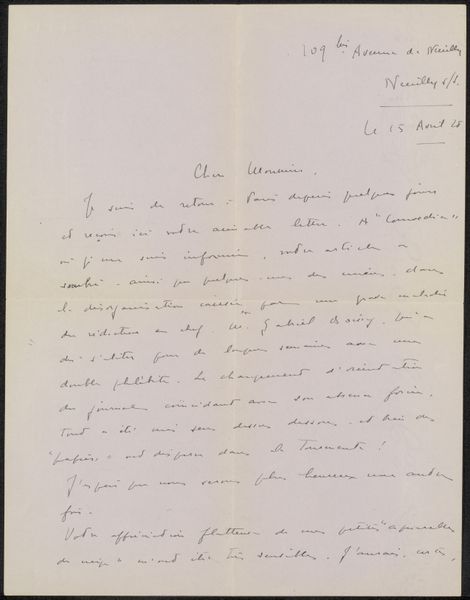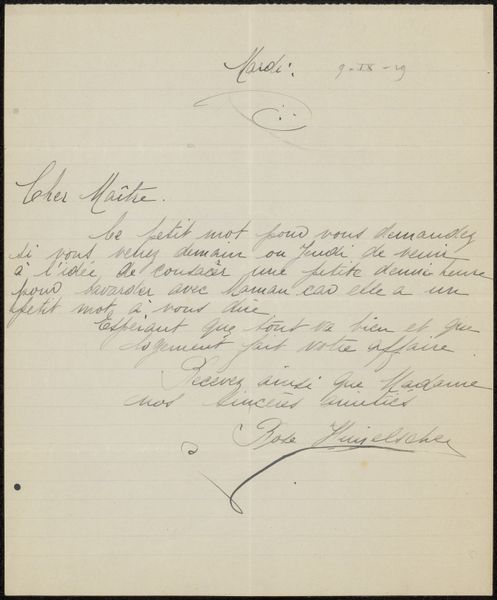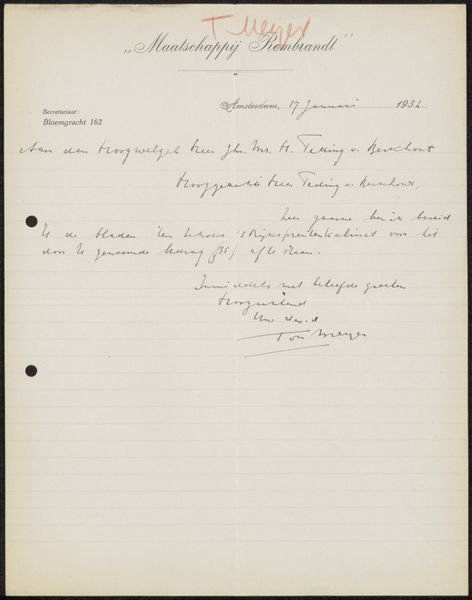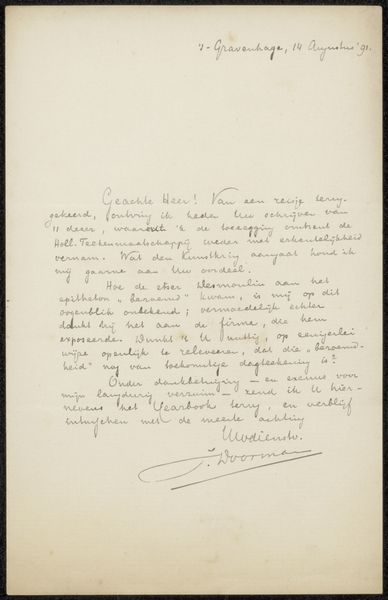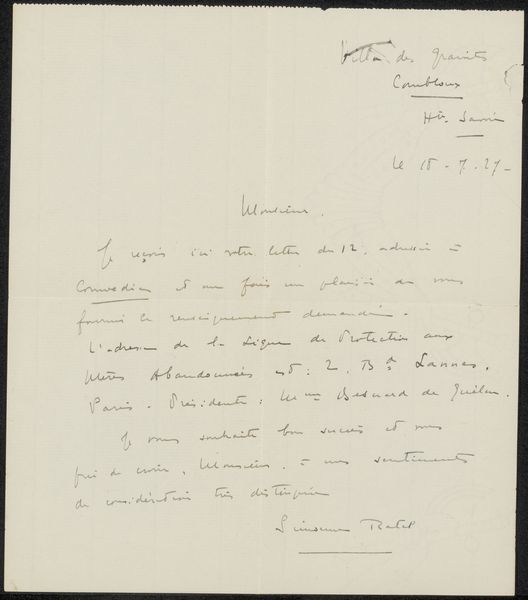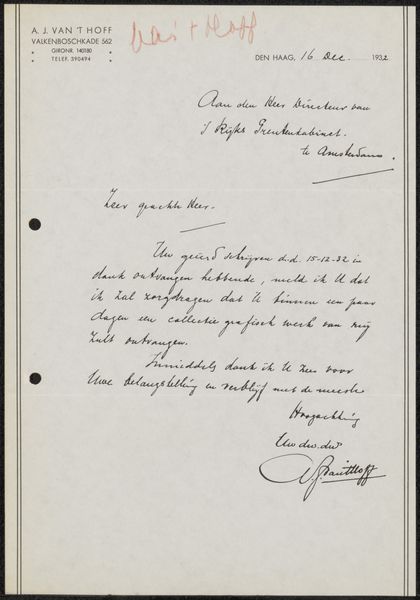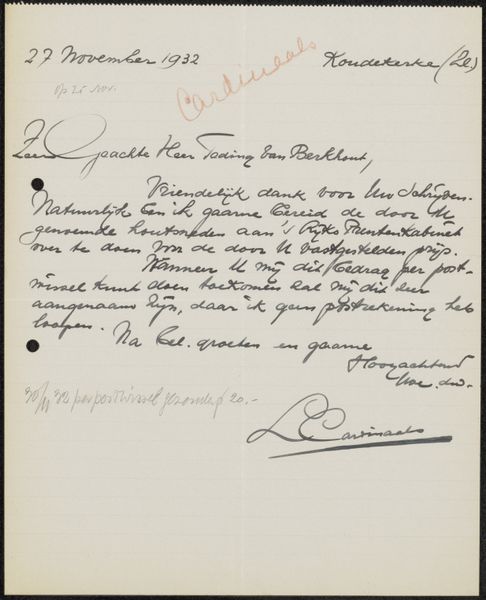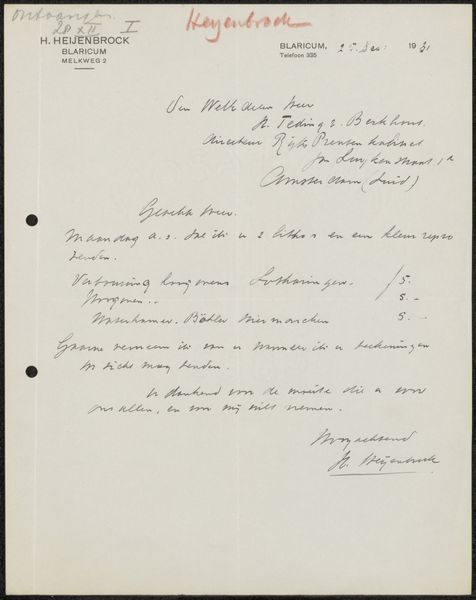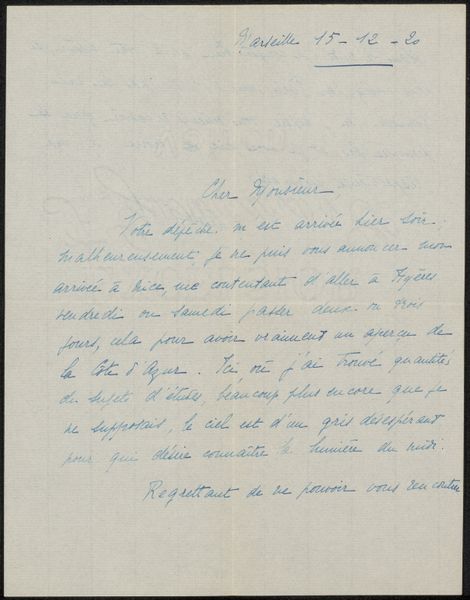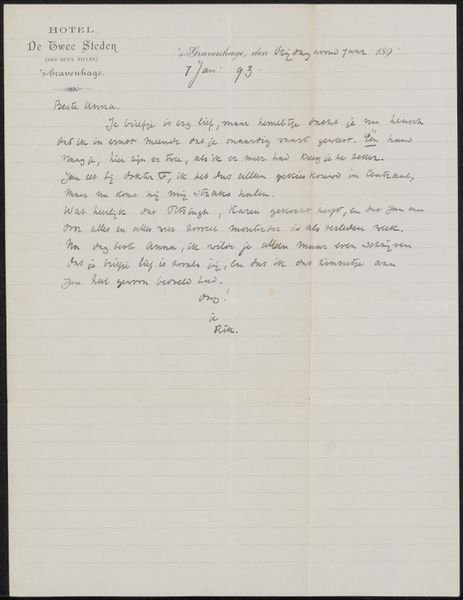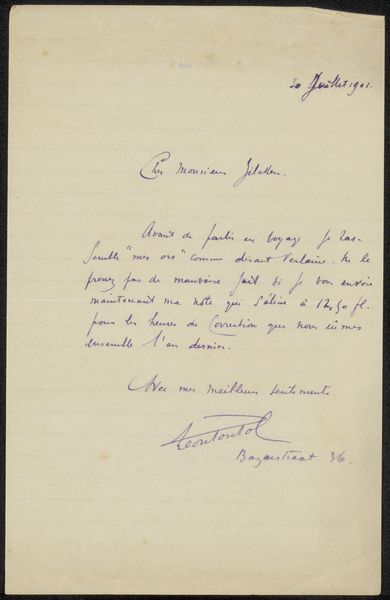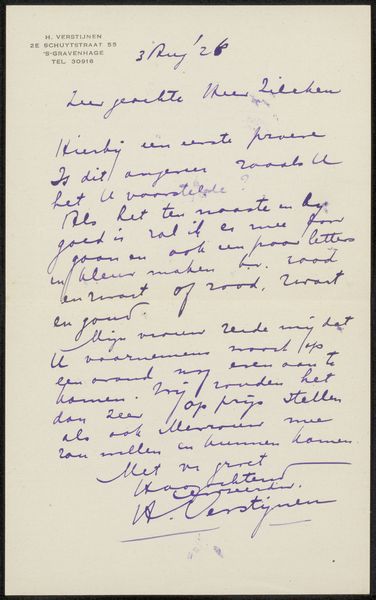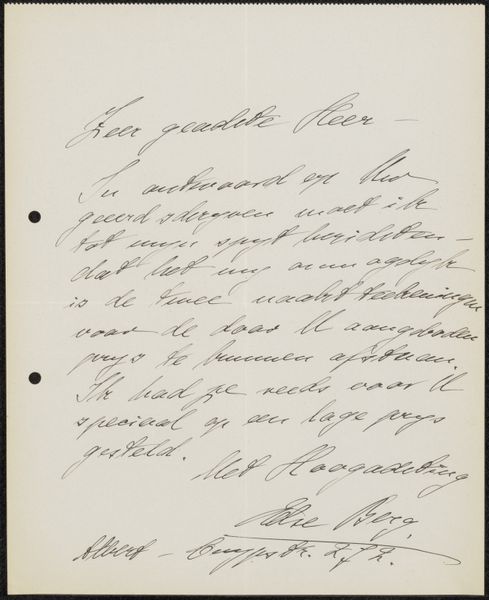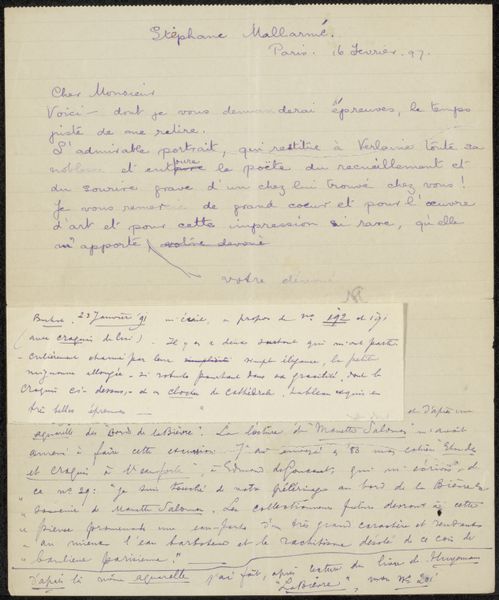
drawing, paper, ink
#
portrait
#
drawing
#
blue ink drawing
#
ink paper printed
#
paper
#
ink
#
modernism
#
calligraphy
Copyright: Rijks Museum: Open Domain
Editor: This is “Brief aan Philip Zilcken,” possibly from 1918, by J. Cohen, made with ink on paper. It's…it's simply a letter. But the script itself has an almost artistic quality. How do you interpret this work beyond its literal content? Curator: I see this letter as a vital historical artifact. While seemingly personal, the act of writing and preserving correspondence was deeply entwined with class, privilege, and social networks. Notice the elegant script; it speaks to education and status. Consider also the time period, possibly 1918. What historical events might have been weighing on Cohen as he penned this note? Editor: World War One, obviously, and the social upheaval that followed. Do you think that awareness informs how we should see this personal note today? Curator: Absolutely. Letters like these offer us glimpses into the everyday lives of people who lived through monumental historical events. This "brief" message can connect us to broader themes of displacement, anxiety, and resilience in a war-torn world, don't you agree? Who was Zilcken? And what was his place within Parisian circles at that time? Editor: From what I know, Philip Zilcken was a Dutch painter, etcher and art critic active in Paris. Given that Cohen wanted to discuss Zilcken's works and had the pleasure to be received with his wife, they may have shared a place in art critique during the period, hence having social ties. The location pointed out, the Hotel du Golfe, may have added extra evidence to his claims. Curator: Precisely! Locating him as a member of a particular artistic and intellectual milieu helps us consider whose voices are amplified in history. Documents like these can also unintentionally exclude and silence the narratives of marginalized groups. We must keep questioning which viewpoints we miss through such letters. Editor: I never considered a letter through this historical lens before. Now I see it has historical context. Curator: Indeed! A simple letter then becomes a fascinating entry point for thinking about class, culture, war, and the politics of representation.
Comments
No comments
Be the first to comment and join the conversation on the ultimate creative platform.
